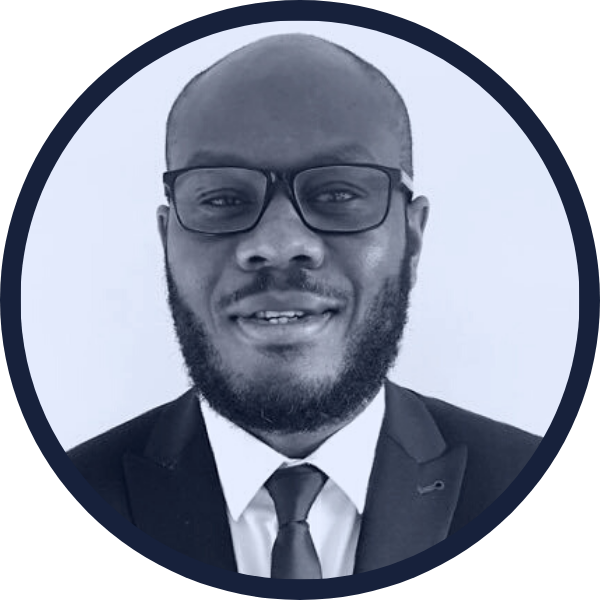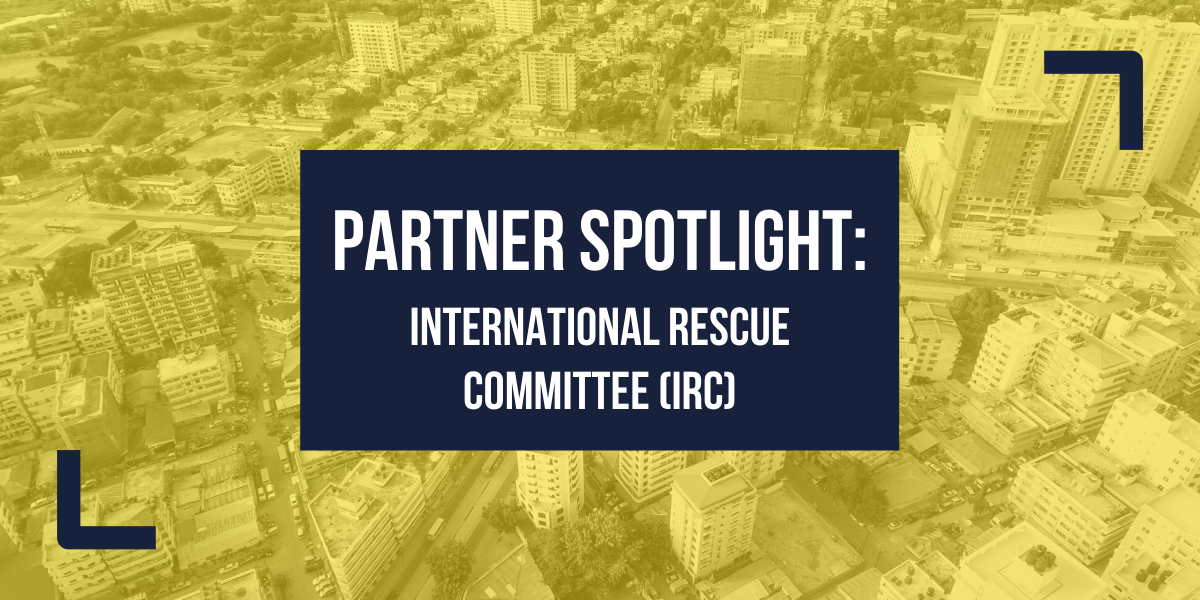The International Rescue Committee (IRC) is a global humanitarian aid organisation that helps people whose lives and livelihoods are impacted by conflict and disaster to survive, recover and regain control of their future. The IRC’s dedicated innovation arm – the Airbel Impact Lab – combines on-the-ground expertise with disciplines including research, human-centred design, costing analysis and behavioural insights.
Wale Osofisan is senior director for governance at the IRC. With more than 20 years of experience in research within the humanitarian and development sector, Wale specialises in governance and peacebuilding, leading a team that operates in more than 30 countries.

What particular area of expertise does the IRC bring to the consortium?
One of the governance unit’s key work streams is programming in urban contexts. We provide services to refugees and internally displaced people, and traditionally this has been in refugee camps. But we have seen over the past ten to 20 years that displacement is often in urban areas, rather than camps. We are interested in understanding the differences between urban displacement and rural camp-based displacement and looking at the cost-effectiveness of providing services in urban areas versus in camps.
Through our relationship with IIED in the UK, we have conducted DFID-funded research in the past on best humanitarian practices in urban settings, so have experience of carrying out research in urban settings. Right now, we are looking into research around the impact of migration from rural to urban areas, and the impact this has on social cohesion in the destination areas. Often in our sector, the impetus is on where people migrate from, so we want to focus on the destination.
We are interested in how we take theory into practice and at the IRC, we pride ourselves on being an evidence-based organisation. Our research gives us the tools to figure out what works in urban settings, so that we can design our interventions taking this evidence into account.
“Our research gives us the tools to figure out what works in urban settings, so that we can design our interventions taking this evidence into account.”
What is the most critical challenge facing African cities?
The biggest problem is governance. If you try to enter a city as an external organisation to implement your own project without consulting with the city, it will fail. The key point is to work with the city and understand what is in their plan.
How can we support that plan? If the plan is outdated, how can we help to update it, with a developmental mindset?
The starting point has to be asking what the city government plans to do – not coming from the outside to implement a project without any consultation, but working with the city to understand and address its needs.
What do you think is most unique about ACRC’s approach to development?
Firstly, the consortium is firmly grounded in and guided by a political approach to development – thinking and working politically, rather than focusing on technical or infrastructural fixes. Sometimes, experts try to solve political problems using solely technical solutions, when a combination of the two is needed. The consortium is clearly guided by a politically informed approach to development, which is very much in line with the approach of my team – using political economy analysis to understand the context in which we are working.
Secondly, the approach adopted by the consortium considers developmental challenges – often referred to as priority complex problems – and looks at these from a multi-sectoral, integrated systems perspective, and not from a single-issue perspective.
“I am excited about the consortium’s orientation to action research – working with local development coalitions to support citizen-led interventions that address complex problems.”
What is most exciting for you about this project?
I am excited about the consortium’s orientation to action research – working with local development coalitions to support citizen-led interventions that address complex problems. I am also excited about the co-production of this research, and building meaningful partnerships with researchers in the countries we’ll be working in. This goes back to the issue of equity – the consortium will actively engage local researchers to conduct city-specific research, which is something that is very positive.
Read more from IRC’s Airbel Impact Lab:
- Where the world is most in need of humanitarian research and innovation
- The role of trust in risk communication
- Solving barriers to life-saving care in community health programs during COVID-19
- Rapid evidence summary: Community-based maternal and newborn health and self-care
Follow IRC’s work:
Note: This article presents the views of the author featured and does not necessarily represent the views of the African Cities Research Consortium as a whole.
The African Cities blog is licensed under Creative Commons Attribution-NonCommercial-NoDerivatives 4.0 International (CC BY-NC-ND 4.0), which means you are welcome to repost this content as long as you provide full credit and a link to this original post.


